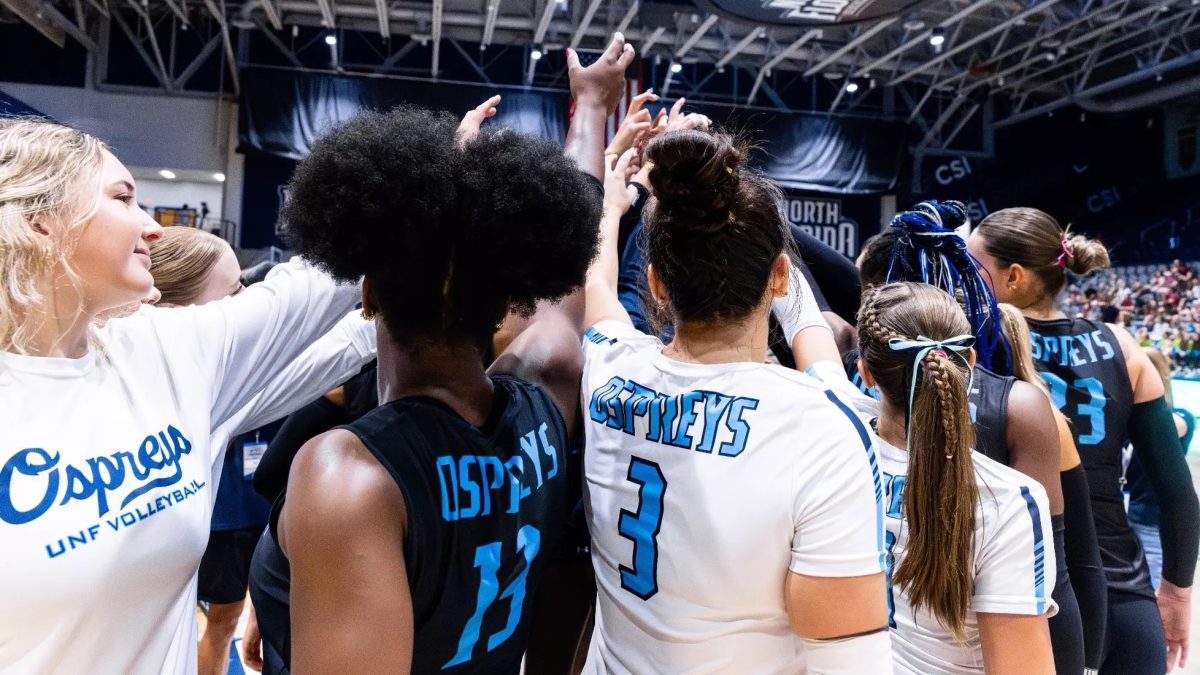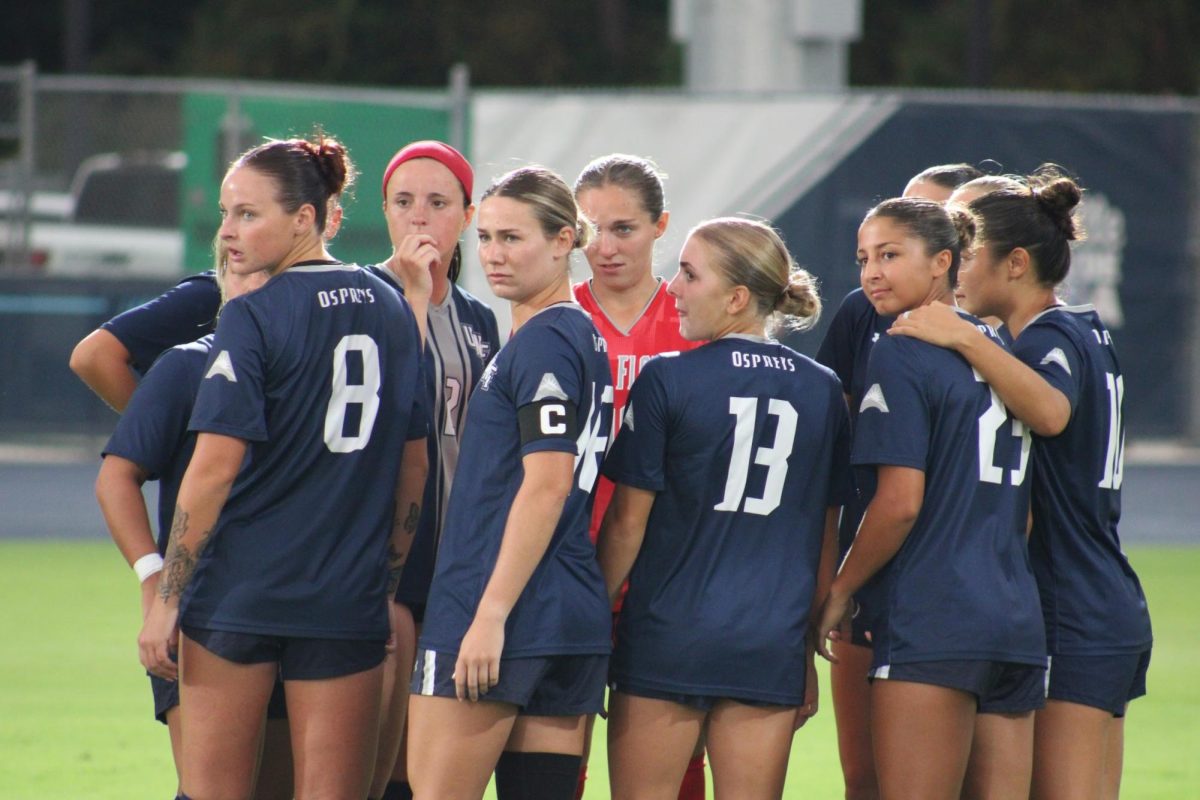Working about 70 hours a week between two jobs doesn’t leave much time for studying, but Dorcelin Bazil, a UNF finance senior, manages to balance his work and academic responsibilities.
Bazil is quick to credit the support of his family for helping him through college with their encouragement and advice but as far as paying for living expenses and tuition goes, he’s on his own, he said.
“The fact that I have a family support system that can tell me I can do it [is a major benefit],” Bazil said. “I’m sure if I surrounded myself with people that told me ‘Well, you know what, just don’t worry about school’ … maybe my outlook would be different.”
Bazil said his full-time work schedule has forced him to go part-time at UNF — he usually takes nine credit hours a semester — and makes keeping up with course work a challenge.
Although Bazil enjoys his jobs, he said his strenuous schedule has hindered his grade point average and will cause him to graduate a semester late.
“I think if I was not working, I would be focused more on getting better grades but now all I really care about is trying to graduate,” Bazil said.
Barring unforeseen circumstances, Bazil will graduate at the end of this semester. In so doing, he will join the 45 percent of UNF students who earn a degree within six years, according to the U.S. Department of Education.
UNF’s degree completion numbers are lower than the national rate by nearly 10 percent.
University endeavors to rectify retention rate
The fact that more than half of entering freshmen do not graduate within six years is something with which UNF officials are concerned and are attempting to improve, said UNF One Stop Director Jim Owen.
“We want to try to retain and eventually graduate as many students as we possibly can,” Owen said.
A committee of university officials is going to study retention rates and assess how UNF can increase graduation levels, Owen said.
“The 45 percent [graduation rate] is really not acceptable,” he said.
Owen said that “in many cases” students are retained and do graduate from UNF, just not within six years.
National study examines graduation rates
A recent study attempted to determine the reasons behind the nation’s underwhelming college graduation statistics.
The nonpartisan and nonprofit research organization Public Agenda conducted a random digit-dialed survey, which was commissioned by the Bill and Melinda Gates Foundation, to assess college completion rates and elicit student responses on what could be done to improve them.
The findings of the study show that the pressures associated with juggling work and school and the inability to afford college costs were top reasons precluding respondents from graduation.
Fifty-four percent of those surveyed said the need to work and make money was a major reason for not completing their degree program, while 31 percent cited tuition and fees as a major reason for faltering in college.
“I don’t know if it’s necessarily a new trend, I’m sure throughout history people have had to work and go to school,” said Jon Rochkind, director of research at Public Agenda. “But what we did see was a very high number saying this was the major reason why they were not able to complete [their degrees].”
The Gates Foundation is interested in finding ways to increase graduation rates and commissioned the survey in an attempt to gain a greater understanding of why college completion rates aren’t higher, said Marie Groark, senior program officer for the Gates Foundation.
Part of the problem in crafting a solution to the college completion conundrum lies in the reality that as student enrollment has increased it has become more difficult to find a one-size-fits-all policy to address the needs of today’s student population, Groark said.
“The reality is that most college students are not what has long been deemed the average college student,” he said. “Most college students have to work, most college students are balancing family responsibilities, school and work responsibilities.”
Rochkind said some ideas that survey respondents offered as possible solutions to attenuate attrition rates included decreasing the cost of tuition, providing for more grants and financial aid, providing more flexible class schedules and more online courses.
Work schedules diminish GPA, college experience
Jamie Smith, a UNF public relations senior, also faces a similar problem a Bazil. She is forced to work more than 30 hours a week to make ends meet.
“I’m on my own,” Smith said. “My parents don’t support me financially, so you know, if you need money, you need money, and sometimes I find myself working harder at work than I do in my school work.”
Smith has noticed an inverse relationship between getting good grades and working long hours at her job.
“I would definitely say that it affects my schoolwork,” Smith said. “Because when I’m on my feet all day, I get home and all I want to do is relax, I don’t want to think, I don’t want to read, I don’t want to work on my schoolwork, so it’s definitely really hard sometimes to juggle [work and school].”
The best grades Smith has ever made in college were during summer session when she wasn’t working and could focus all her energies on school, she said.
Ariel Woessner, a UNF advertising sophomore, who also has to work more than 30 hours a week said she fell behind in her classes last semester. But was resolved to stay on top of her classes this term, she said.
“It’s just a matter of time management,” Woessner said. “In the end, you have to find the time to do it all.”
Bazil feels that the intense work schedule and the tenuous work and school balancing act has foreclosed some of the opportunities that some college students take for granted, he said.
“Honestly, I don’t even know what it feels like to be in college … I just go to class,” Bazil said. “I haven’t enjoyed the whole college experience, it’s not what I thought it would be, and I think a lot of that has to do with the fact that I have to work so much.”















